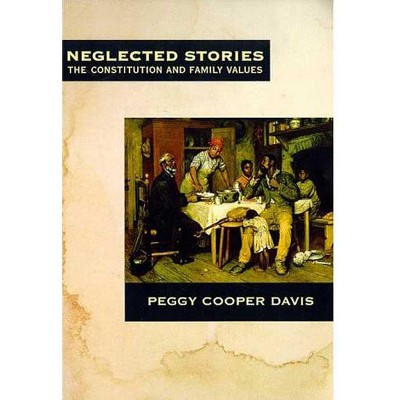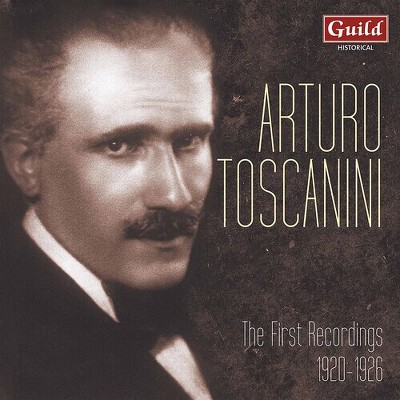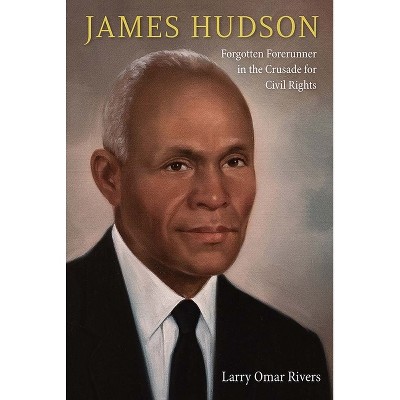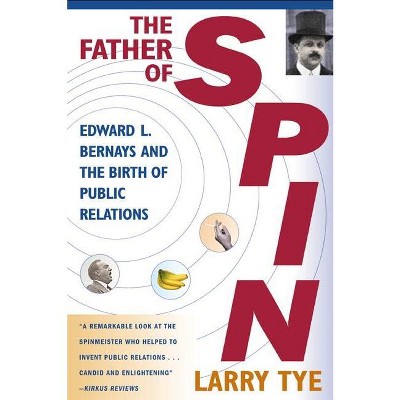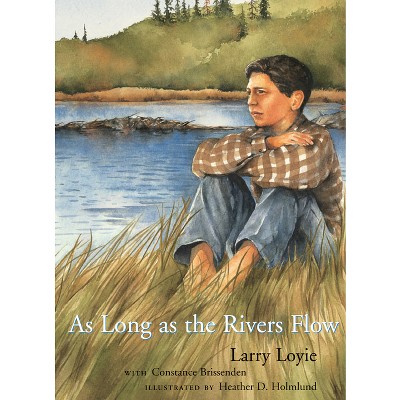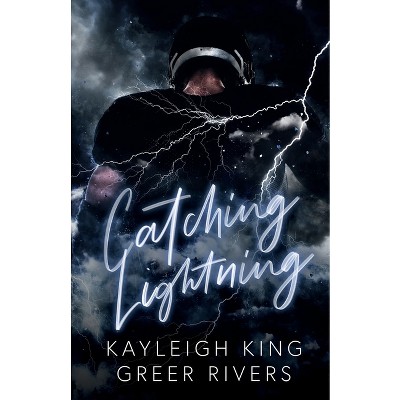Sponsored

Father James Page - by Larry Eugene Rivers (Hardcover)
In Stock
Sponsored
About this item
Highlights
- This first-of-its-kind biography tells the story of Rev. James Page, who rose from slavery in the nineteenth century to become a religious and political leader among African Americans as well as an international spokesperson for the cause of racial equality.Winner of the Rembert Patrick Award by The Florida Historical Society, Florida Non-Fiction Book Award by the Florida Book Awards, Harry T. and Harrietter V. Moore Award by the Florida Historical SocietyJames Page spent the majority of his life enslaved--during which time he experienced the death of his free father, witnessed his mother and brother being sold on the auction block, and was forcibly moved 700 miles south from Richmond, VA, to Tallahassee, FL, by his enslaver, John Parkhill.
- About the Author: Larry Eugene Rivers is a Distinguished Professor of History at Florida A&M University and the author or coauthor of eight books, including Slavery in Florida: Territorial Days to Emancipation and Rebels and Runaways: Slave Resistance in Nineteenth Century Florida.
- 324 Pages
- Biography + Autobiography, Historical
Description
About the Book
Rivers' biography of Page is an important addition, and corrective, to our understanding of black spirituality and religion, political organizing, and civic engagement.Book Synopsis
This first-of-its-kind biography tells the story of Rev. James Page, who rose from slavery in the nineteenth century to become a religious and political leader among African Americans as well as an international spokesperson for the cause of racial equality.
Winner of the Rembert Patrick Award by The Florida Historical Society, Florida Non-Fiction Book Award by the Florida Book Awards, Harry T. and Harrietter V. Moore Award by the Florida Historical Society
James Page spent the majority of his life enslaved--during which time he experienced the death of his free father, witnessed his mother and brother being sold on the auction block, and was forcibly moved 700 miles south from Richmond, VA, to Tallahassee, FL, by his enslaver, John Parkhill. Page would go on to become Parkhill's chief aide on his plantation and, unusually, a religious leader who was widely respected by enslaved men and women as well as by white clergy, educators, and politicians. Rare for enslaved people at the time, Page was literate--and left behind ten letters that focused on his philosophy as an enslaved preacher and, later, as a free minister, educator, politician, and social justice advocate.
In Father James Page, Larry Eugene Rivers presents Page as a complex, conflicted man: neither a nonthreatening, accommodationist mouthpiece for white supremacy nor a calculating schemer fomenting rebellion. Rivers emphasizes Page's agency in pursuing a religious vocation, in seeking to exhibit "manliness" in the face of chattel slavery, and in pushing back against the overwhelming power of his enslaver. Post-emancipation, Page continued to preach and to advocate for black self-determination and independence through black land ownership, political participation, and business ownership. The church he founded--Bethel Missionary Baptist Church in Tallahassee--would go on to be a major political force not only during Reconstruction but through today.
Based upon numerous archival sources and personal papers, as well as an in-depth interview of James Page and a reflection on his life by a contemporary, this deeply researched book brings to light a fascinating life filled with contradictions concerning gender, education, and the social interaction between the races. Rivers' biography of Page is an important addition, and corrective, to our understanding of black spirituality and religion, political organizing, and civic engagement.
Review Quotes
deeply researched and inspiring book...Rivers does an excellent job of analyzing and describing the very complicated and sometimes contradictory behavior of Father James Page.
--Said Sewell, Diverse: Issues in Higher Education
[Rivers] rightly argues that the emphasis on slaveholders' paternalism in studies of bondpeople often over-determines how scholars narrate the activities of the enslaved. Instead, he invites scholars to ask questions about Black agency--specifically how enslaved preachers like Page reasoned and made choices that ultimately shaped Black, southern, and American religious cultures.
--Alexis Wells-Oghoghomeh, Standford University, Journal of Southern History
As the first scholarly, full-length biography of any 19th century enslaved preacher from slavery to freedom Rivers' impeccably written biography is an impressive undertaking that required years of archival digging and a careful examination of the limited primary sources available[it] models the practice of vivifying overlooked historical figures.
--Mélena Laudig, Princeton University, Reading Religion
Because the past informs the present, Rivers illuminates the path of Father James Page's climb to freedom as a framework for measuring our own lives and the progress of Florida and America toward achieving racial justice and equality.
--Valerie Scoon, Florida State University, Capital Outlook
Dr. Rivers has written a very brave book, because it refuses to accept stereotypes no matter their origin.
--The Tallahassee Democrat
This is a remarkable book, deeply researched, gracefully written, and revealing many astonishing facts about the trials of a slave and how he coped with racial attitudes and prejudices.
--Loren Schweninger, University of North Carolina at Greensboro, Canadian Journal of History
About the Author
Larry Eugene Rivers is a Distinguished Professor of History at Florida A&M University and the author or coauthor of eight books, including Slavery in Florida: Territorial Days to Emancipation and Rebels and Runaways: Slave Resistance in Nineteenth Century Florida.
Shipping details
Return details
Frequently bought together




